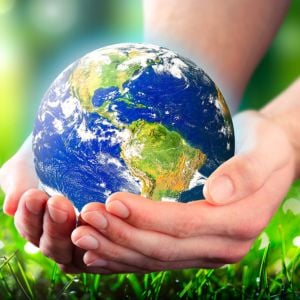"See, I am now establishing my covenant with you
and your descendants after you
and with every living creature that was with you:
all the birds, and the various tame and wild animals”
 What stood out to me in this reading was the emphasis on widening the net of care. There is an explicit mention of the descendants that will succeed us as well as "every living creature that was with you -- tame and wild animals." I thought that this was a subtle but powerful ontological choice, because so much of Western philosophy, and thus Western religion, seems to contain the vocabulary of mankind, making it easy to forget that the beneficiaries of God's covenant extend to those who cannot voice it in the language that we capitalize — this includes future generations of humans and the inhabitants of our biosphere that are inextricable to an ethical life.
What stood out to me in this reading was the emphasis on widening the net of care. There is an explicit mention of the descendants that will succeed us as well as "every living creature that was with you -- tame and wild animals." I thought that this was a subtle but powerful ontological choice, because so much of Western philosophy, and thus Western religion, seems to contain the vocabulary of mankind, making it easy to forget that the beneficiaries of God's covenant extend to those who cannot voice it in the language that we capitalize — this includes future generations of humans and the inhabitants of our biosphere that are inextricable to an ethical life.
I think this elevates our moral responsibility to others and ourselves. Through this reading, we are encouraged to consider that the consequences of our actions implicate lives positioned in the future and those existing parallel to us. This asks to consider that our moral responsibility rests across both time and space. Time, which would separate us from future generations, is rendered null when the covenant is extended to our descendants -- this means that our duties as Catholics are very, very long-term commitments. It’s a commitment that will outlast our mortality. Something we should deeply consider.
Beyond time, space, which would separate us from committed regard towards other species, is closed — this means that Catholicism is no longer limited to the wellbeing of humans, but the wellbeing of all participants of life on earth. It seems a bit silly that these things are not inherent, but the way we have constructed our cities and lead our daily lives are rife with excess of energy extraction, waste/toxin production, habitat destruction, and misguided incentives that lock us into behaviors that dramatically limit our compassion. If we are participants in economies that perpetuate ecosystem death, how far can our compassion really reach? How much of our kindness is contained within the human bubble?
Carl Sagan, American astronomer and science communicator, commented on our moral responsibility to "deal more kindly with one another, and to preserve and cherish the pale blue dot, the only home we've ever known.” I really like this quote because it makes the idea of our moral duty much simpler. Our planet is our home, a gift from our Father, and we should take really good care of it. It is also ironic that our economic incentive systems are a primary driving force of the climate crisis because the word economy stems from the Greek word “oikonomia” which means “household management.”
In the upcoming months, we will see spring. As the earth regenerates herself, how can we become better housekeepers? So many things. We can first be brave enough to learn about and acknowledge the flaws of our current habits. But this also means that we can respond by redesigning our lifestyles, bit by bit, to better reflect the kind of housekeepers we’d want to be.
With the short time we have on this mysterious planet, we are invited to be curious about how special and rare life on earth is, appreciate this more fully, and use this gratitude to fuel our compassion to extents we couldn’t have imagined before. Our duties are exciting, inviting, compelling. We become aware and in conversation with our interdependence on creatures that pollinate our crops, nourish our forests, and regulate atmospheric carbon cycles. Did you know that some waxworms have spit that can melt plastic??
Our curiosity is so meaningful because we can realize that our seeming infinitesimal existences may be a drop in the ocean, but the ocean is more beautiful than we’ll ever know. I hope we can swim together in it. Just keep swimming! As they say.



